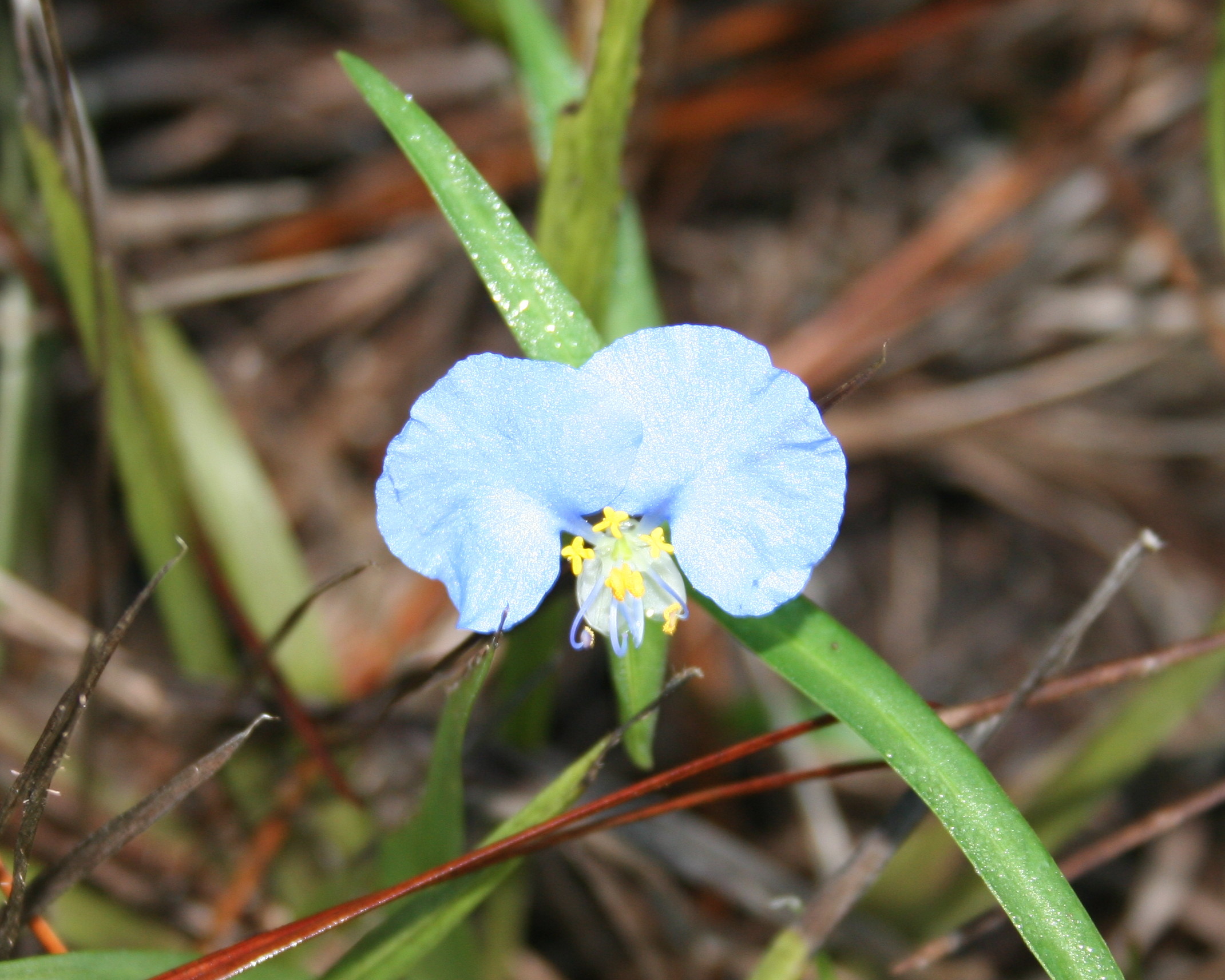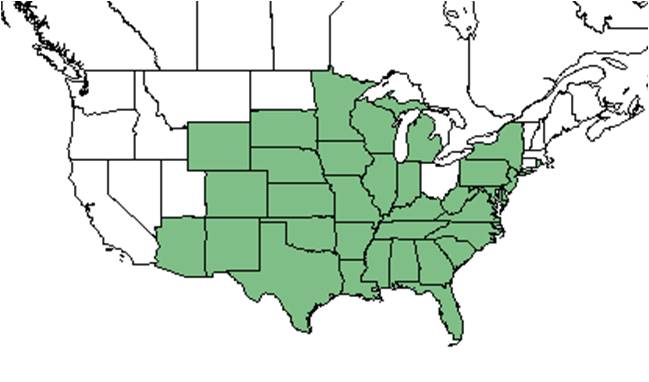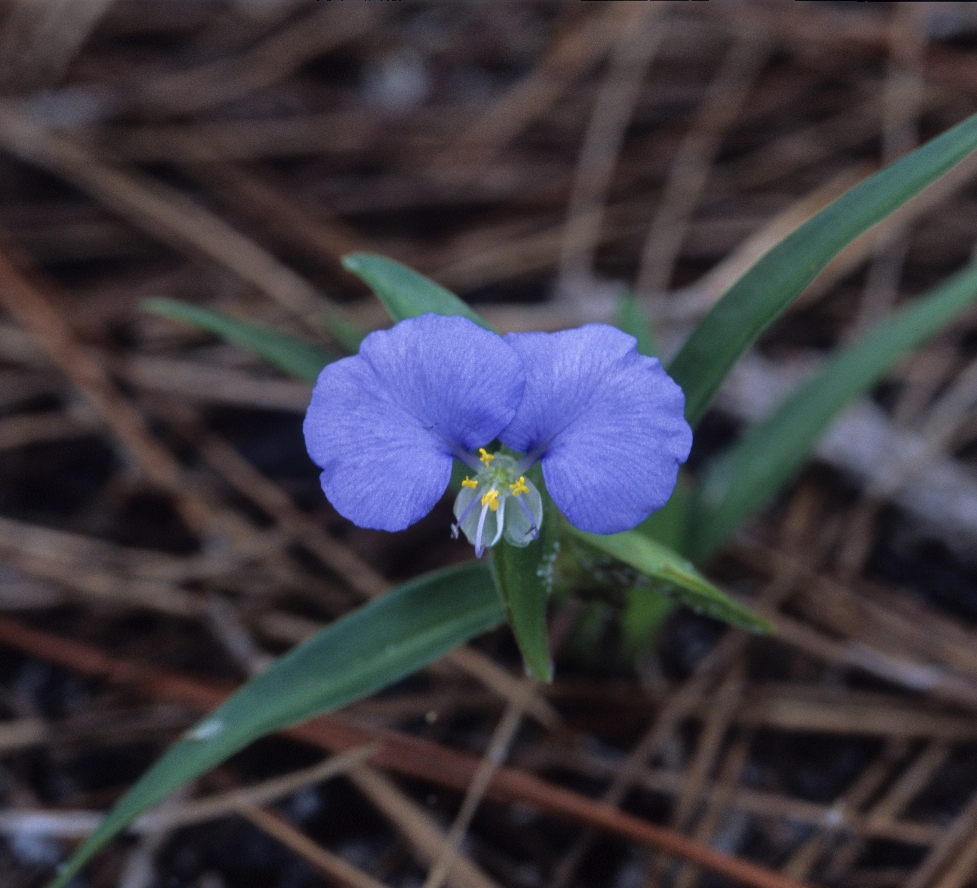Difference between revisions of "Commelina erecta"
Krobertson (talk | contribs) |
Krobertson (talk | contribs) |
||
| Line 29: | Line 29: | ||
<!--===Habitat===--> <!--Natural communities, human disturbed habitats, topography, hydrology, soils, light, fire regime requirements for removal of competition, etc.--> | <!--===Habitat===--> <!--Natural communities, human disturbed habitats, topography, hydrology, soils, light, fire regime requirements for removal of competition, etc.--> | ||
===Phenology=== <!--Timing off flowering, fruiting, seed dispersal, and environmental triggers. Cite PanFlora website if appropriate: http://www.gilnelson.com/PanFlora/ --> | ===Phenology=== <!--Timing off flowering, fruiting, seed dispersal, and environmental triggers. Cite PanFlora website if appropriate: http://www.gilnelson.com/PanFlora/ --> | ||
| − | ''C. erecta'' flowers May to September and also in November with peak inflorescence in June and July.<ref>Nelson, G. [http://www.gilnelson.com/ PanFlora]: Plant data for the eastern United States with emphasis on the Southeastern Coastal Plains, Florida, and the Florida Panhandle. www.gilnelson.com/PanFlora/ Accessed: 7 DEC 2016</ref> In repeated annual censuses conducted in October in permanently marked plots in native longleaf pine-wiregrass | + | ''C. erecta'' flowers May to September and also in November with peak inflorescence in June and July.<ref>Nelson, G. [http://www.gilnelson.com/ PanFlora]: Plant data for the eastern United States with emphasis on the Southeastern Coastal Plains, Florida, and the Florida Panhandle. www.gilnelson.com/PanFlora/ Accessed: 7 DEC 2016</ref> In repeated annual censuses conducted in October in permanently marked plots in native longleaf pine-wiregrass communities in southern Georgia, ''C. erecta'' appeared only in certain years, seemingly in particularly wet years<ref>Robertson, K.M. 2017 Pebble Hill Fire Plots database. Tall Timbers Research, Inc., Tallahassee, Florida.</ref> |
===Seed dispersal=== | ===Seed dispersal=== | ||
Revision as of 15:59, 18 September 2017
| Commelina erecta | |
|---|---|

| |
| Photo by Tom Miller, Apalachicola National Forest, FL | |
| Scientific classification | |
| Kingdom: | Plantae |
| Division: | Magnoliophyta - Flowering plants |
| Class: | Liliopsida – Monocotyledons |
| Order: | Commelinales |
| Family: | Commelinaceae |
| Genus: | Commelina |
| Species: | C. erecta |
| Binomial name | |
| Commelina erecta L. | |

| |
| Natural range of Commelina erecta from USDA NRCS Plants Database. | |
Common name: Whitemouth dayflower
Contents
Taxonomic notes
Synonyms: Commelina angustifolia Michaux; C. crispa Wooton; C. elegans Kunth The Flora of North America.
Description
A description of Commelina erecta is provided in The Flora of North America.
Distribution
Ecology
Phenology
C. erecta flowers May to September and also in November with peak inflorescence in June and July.[1] In repeated annual censuses conducted in October in permanently marked plots in native longleaf pine-wiregrass communities in southern Georgia, C. erecta appeared only in certain years, seemingly in particularly wet years[2]
Seed dispersal
This species disperses by gravity. [3]
Pollination
The following Hymenoptera families and species were observed visiting flowers of Commelina erecta at Archbold Biological Station:[4]
Halictidae: Augochlorella aurata, Augochloropsis metallica, A. sumptuosa, Lasioglossum nymphalis, L. placidensis
Megachilidae: Megachile brevis pseudobrevis
Conservation and management
Cultivation and restoration
Photo Gallery
References and notes
- ↑ Nelson, G. PanFlora: Plant data for the eastern United States with emphasis on the Southeastern Coastal Plains, Florida, and the Florida Panhandle. www.gilnelson.com/PanFlora/ Accessed: 7 DEC 2016
- ↑ Robertson, K.M. 2017 Pebble Hill Fire Plots database. Tall Timbers Research, Inc., Tallahassee, Florida.
- ↑ Kirkman, L. Katherine. Unpublished database of seed dispersal mode of plants found in Coastal Plain longleaf pine-grasslands of the Jones Ecological Research Center, Georgia.
- ↑ Deyrup, M.A. and N.D. 2015. Database of observations of Hymenoptera visitations to flowers of plants on Archbold Biological Station, Florida, USA.
